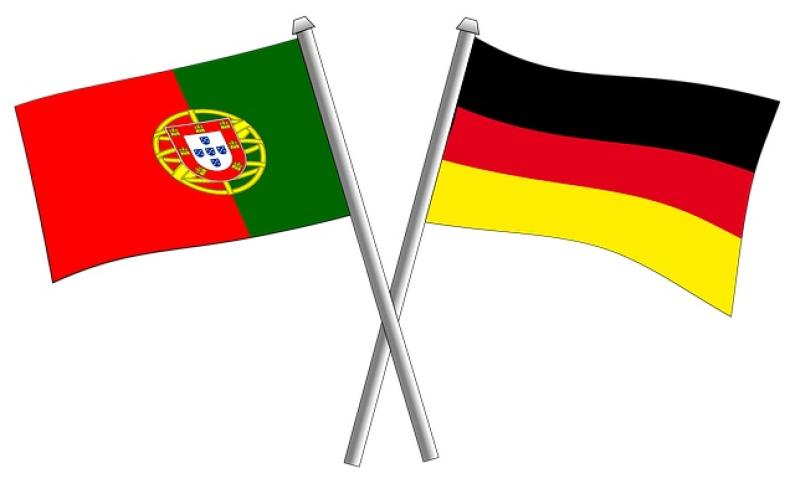
Portugal is located in the west of the Iberian Peninsula, and is bordered by the Atlantic Ocean to the south and west of the country. There are more than 2,500 kilometres between Berlin and the capital of Portugal, Lisbon
Communication: Many similarities and big differences
If you look at the way both countries communicate, you will find a number of similarities at first. In Germany, it is important to use formal titles and in Portugal, a professional such as an engineer or a doctor also likes to be greeted formally at a first meeting.
In Portugal, people have a relaxed way with each other and this is extended into the way they communicate with their business partners. A handshake can quickly turn into a kiss on the cheek and no one minds. Physical contact is important to the Portuguese and they can sometimes feel offended by the typically more reserved nature of the Germans. The Portuguese don’t engage in small talk about things such careers, salaries or even religion as the Germans sometimes do, preferring instead to talk about literature, films or good wine in order to build mutual trust.
Basic communication rules in business
The Portuguese are very proud of their language and they like it, at least when you first meet them, if you have taken time to learn a few phrases. It gives a good first impression. After that, people like to switch to French or English to make it easier for foreign business partners.
Every conversation in Portugal begins with small talk, which can take some time. The German openness and direct way of addressing a problem is rather foreign to the Portuguese. They like to discuss a problem at length and explore it from all angles. You should not interrupt them and let them finish talking to keep the conversation friendly even if there are different opinions about something. In Portugal, people only criticise people in private, because anything else is perceived as a personal attack. In Germany, final decisions are often made at the end of a meeting. In Portugal, the boss of a company makes the final decision and it is usually done after a meeting.
In Portugal people don’t always answer email enquiries and they prefer personal contact or making telephone calls. The Portuguese like to dress formally, whereas in Germany informal dress is normal in everyday working life.
The dining culture: from the bar table to the lunch table
People enjoy eating in Portugal and like to take time to eat properly. They don’t follow Germany’s street food eating culture – for example standing and eating currywurst, which is a popular thing to do in Germany. Even during the week most Portuguese try to take time for meals and they enjoy hot food at lunchtime and in the evening. Unlike in Germany, people like to have passionate discussions over their meals, where they will talk about important topics such as politics.
In Portuguese restaurants you don't look for your own table, but wait to be seated by the waiter and the country's cuisine is characterised by fresh fish dishes. If you are invited to someone’s house, you should not forget to take a gift such as chocolate. You have to be careful when choosing which flowers to take in Portugal, because, for example, red flowers can remind people of the revolution and chrysanthemums or lilies are more likely to be seen in a cemetery than on a table in Portugal.
Frequently asked questions about differences between Germany and Portugal
How big is Portugal compared to Germany?
Germany is significantly larger than Portugal. Portugal at about 92,000 square kilometres would fit about three and a half times into Germany. There are also big differences in the size of their populations. Portugal has about 10 million inhabitants, while Germany has over 80 million.
What languages are understood in Portugal?
Portuguese is the official language in Portugal, but many of the country's inhabitants also speak French or Spanish. In the larger cities English is becoming increasingly popular.
What is the biggest difference between Germany and Portugal?
In Germany, many things are planned down to the last detail and then implemented in a certain way. In Portugal, less time is spent on planning and more time is spent ensuring that there are no errors.
Add new comment